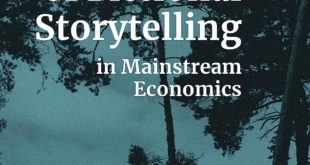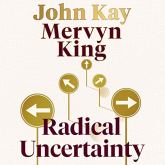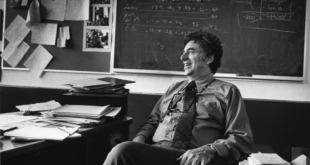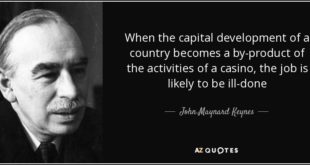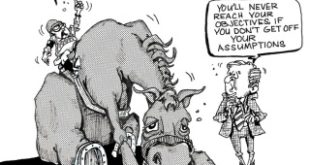On the best sellers list in economics and econometrics Yours truly’s latest book has made it onto Amazon’s lists of best sellers in economics and econometrics. I am — of course — truly awed, honoured and delighted.
Read More »Does it — really — “take a model to beat a model”?
Does it — really — “take a model to beat a model”? When we provide such a critique, we often hear another mantra to which many economists subscribe: ‘It takes a model to beat a model.’ On the contrary, we believe that it takes facts and observations to beat a model … If a model fails to answer the problem to which it is addressed, it should be put back in the toolbox … It is not necessary to have an alternative tool available to know that the plumber who...
Read More »Is economics already pluralist?
Is economics already pluralist? Some argue that economics as a science is already pluralist and that the critique of pluralists addresses a strawman. Newly emerged research areas such as behavioral economics are often presented as examples. Yet, to assess the argument that ‘economics is already pluralist’, one has to be explicit about the dimension and degree of plurality that is being considered … Considering the topical dimension of economics, for...
Read More »Financial instability
The recurring pattern in financial crises is more or less the same. For some reason, a shift occurs in the economic cycle (such as war, innovations, new regulations, etc.) that leads to changes in the profit opportunities for banks and companies. Demand and prices rise, pulling more and more parts of the economy into a state of euphoria. Speculative mania, whether it pertains to tulip bulbs, real estate, or mortgages, becomes a reality. Sooner or later, someone sells to cash...
Read More »Keynes and the casino
Keynes and the casino According to Keynes, financial crises are a recurring feature of our economy and are linked to its fundamental financial instability: It is of the nature of organised investment markets, under the influence of purchasers largely ignorant of what they are buying and of speculators who are more concerned with forecasting the next shift of market sentiment than with a reasonable estimate of the future yield of capital-assets, that, when...
Read More »Jesper Jespersen reviewing my latest book
Jesper Jespersen reviewing my latest book Having read Syll’s book, one cannot avoid wondering how it is that modern mathematical economics still holds such a dominant position in terms of textbooks and economic practice. This is especially so if you consider two things: First, if one peruses the shelves of economic literature of any major bookstore (in London or even Copenhagen), it is clearly books written by dissenting economists which dominate the...
Read More »Econometrics — science based on unwarranted assumptions
Econometrics — science based on unwarranted assumptions Unfortunately, assumption uncertainty reduces the status of deductions and statistical computations to exercises in hypothetical reasoning – they provide best-case scenarios of what we could infer from specific data. Even more unfortunate, however, is that this exercise is deceptive to the extent it ignores or misrepresents available information, and makes hidden assumptions that are unsupported by...
Read More »The façade of precision in mainstream economics
The façade of precision in mainstream economics [Jevons] is a man of some ability, but he seems to me to have a mania for encumbering questions with useless complications, and with a notation implying the existence of greater precision in the data than the questions admit of. John Stuart Mill Fixation on constructing models — “implying the existence of greater precision in the data than the questions admit of” — showing the certainty of logical entailment...
Read More »The lack of theory in social experiments
The lack of theory in social experiments Jason Collins discusses a paper by Milkman et al. that presented “a megastudy testing 54 interventions to increase the gym visits of 61,000 experimental participants” … Collins’s discussion seems reasonable to me. In particular, I agree with his big problem about the design of this “mega-study,” which is that there’s all sorts of rigor in the randomization and analysis plan, but no rigor at all when it comes to...
Read More »Sraffa on Ricardo’s ‘corn model’ (wonkish)
Sraffa on Ricardo’s ‘corn model’ (wonkish) After being tasked with editing David Ricardo’s Collected Works in 1930, Sraffa, with the assistance of Maurice Dobb, published them between 1951 and 1973. This work earned him the 1961 Söderström Gold Medal from The Royal Swedish Academy of Sciences. For the edition, Sraffa wrote an interesting and thought-provoking introduction. Its purpose was to demonstrate that the classical economists based their theory on...
Read More » Heterodox
Heterodox

